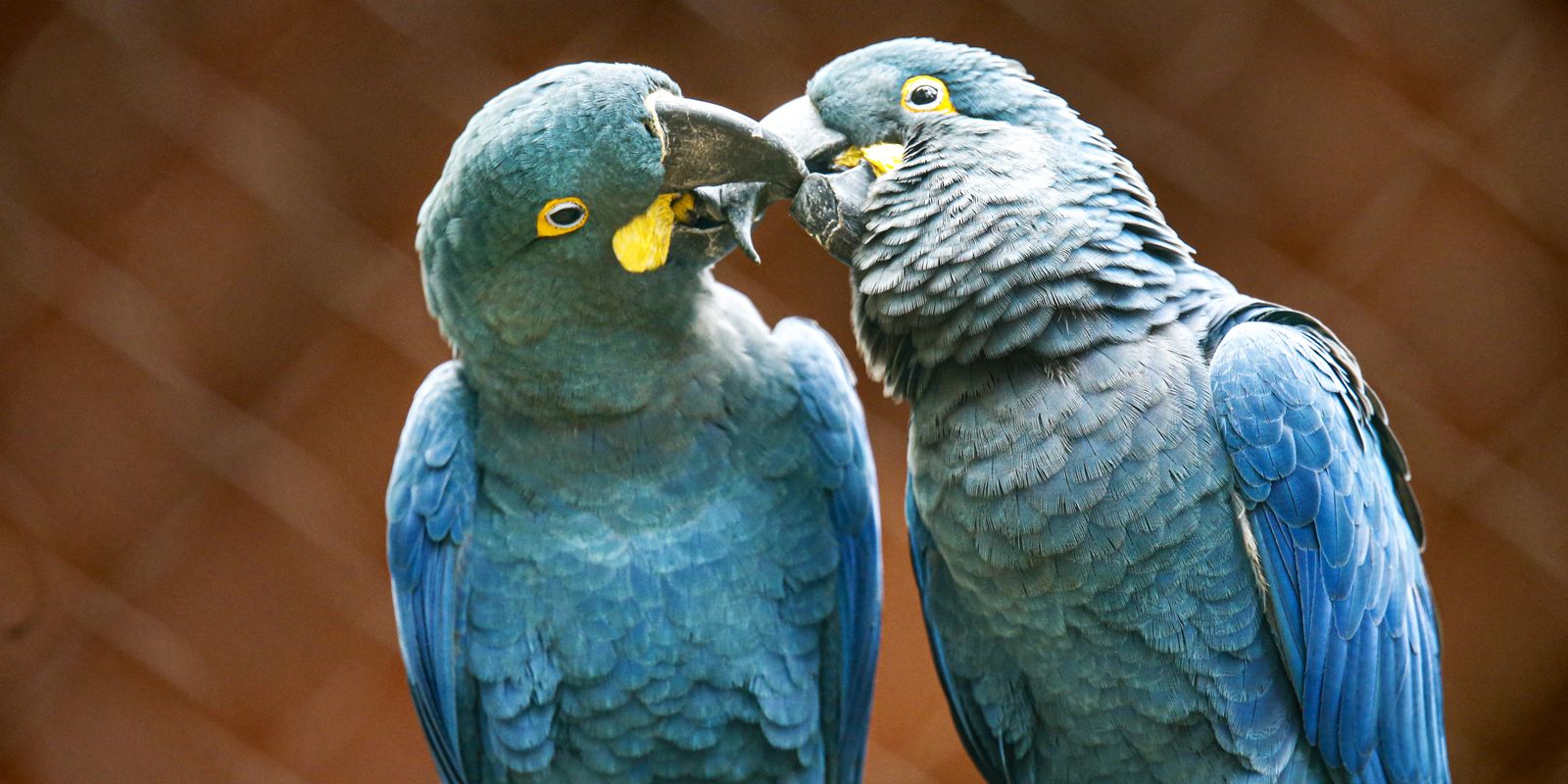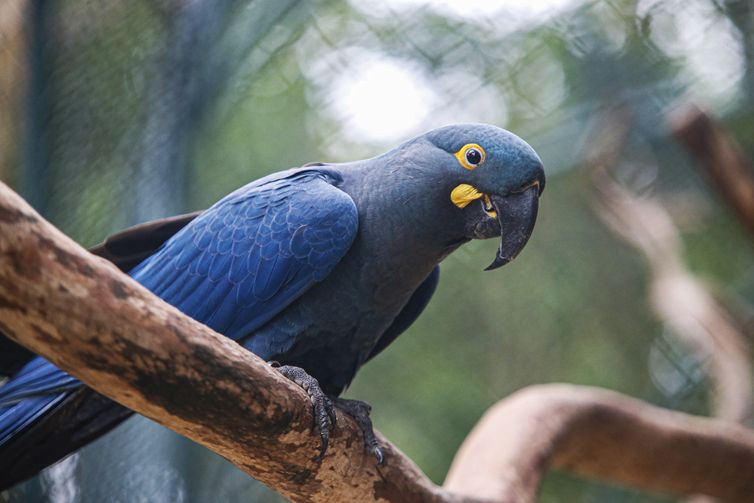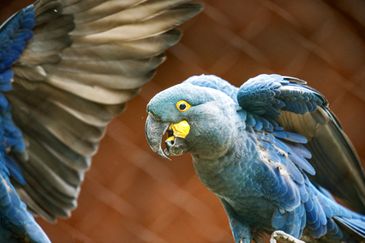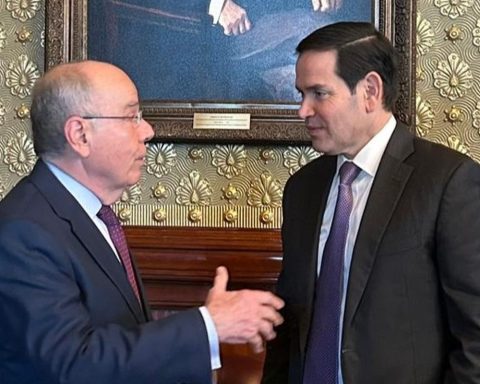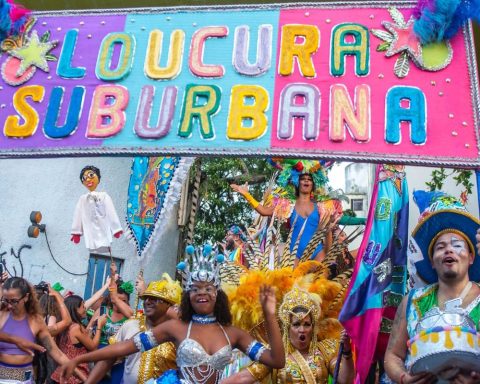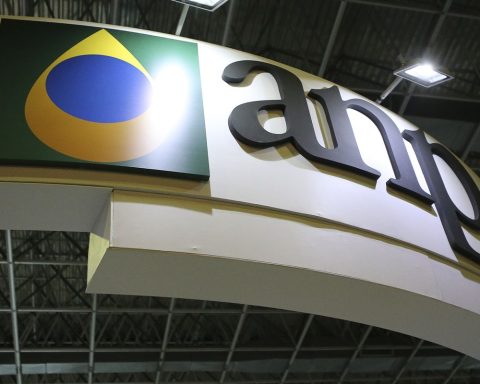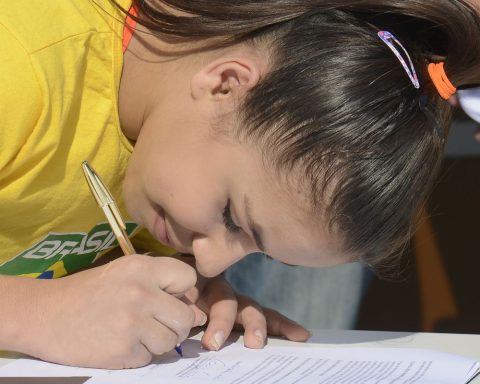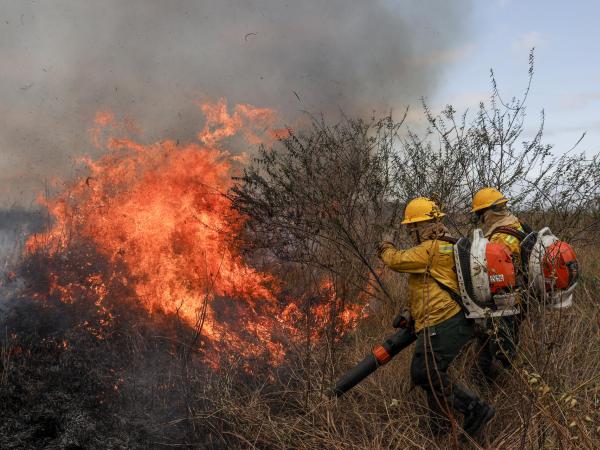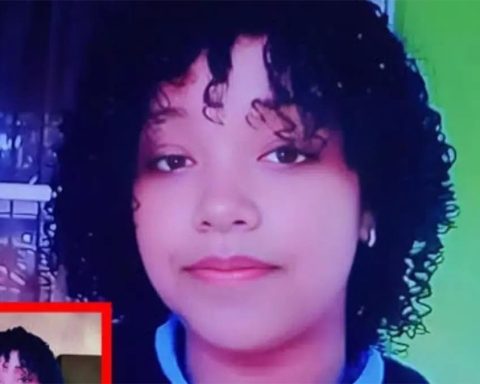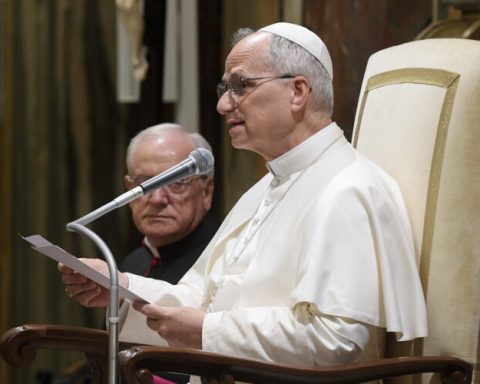The São Paulo Zoo has installed a group of six Lear’s macaws, an endangered species, in its visitor area for the first time. Public, state and municipal schools in the state of São Paulo can now request to schedule free visits. Each school can schedule a tour for up to 250 students per day. 
The institution is the first in the country to breed the species in captivity from a breeding pair rescued from animal trafficking. The Lear’s macaw (Anodorhynchus leari), which is on the National List of Threatened Species, currently has 2,200 specimens in the wild, according to the latest census by the Chico Mendes Institute for Biodiversity Conservation (ICMBIO).
The bird is native to the interior of Bahia, a caatinga region with sandstone walls. Currently, the main threats to the species are deforestation of its territories, animal trafficking, urban densification and forest fires.
Nursery
The birds were transferred to an aviary built especially for them. There are six Lear’s macaws there: Felipe, Luca, Antonio and Benjamin, Amora and Romeu, who are the children of Maria Clara and Francisco, also parents of Teobaldo, the first individual born in a zoo in Latin America, in 2015.
To date, 19 chicks have been born at the institution and five of them were sent to the release program in Bahia, their original habitat, through a partnership with the Lear’s Macaw Institute, part of the national conservation network for the species.
One of the institution’s concerns is the educational nature of the initiative.
“The site has signs with conservation guidelines, in addition to the presence of environmental educators who talk to visitors about the importance of environmental preservation. The area is also an important educational center for students who visit the site. It is worth remembering that the São Paulo Zoo receives free admission three times a week to students from public schools in the municipal and state networks,” said Cláudio Hermes Maas, technical director of the São Paulo Zoo, in an interview with Brazil Agencyl.
Although the species do not share the aviary with others, the chosen space is installed in the avenues that make up the forest, together with other bird species. Some, such as the Guandoja, are also among the endangered species that receive special attention in conservation programs.
According to Massa, the zoo intends to increase the number of endangered species of birds, establishing an educational circuit about animals at risk of extinction.
How to know
Requests for scheduling free school visits can be made by email [email protected] – with the full name of the establishment and the number of students who will take the trip. website of the zoo, you can find the step-by-step guide for the request, as well as the annual calendar. Each school can schedule a trip with up to 250 students per day.
Private tickets start at R$39.90. The institution is open every day of the week. Other free tickets, discounts and opening times are available at website.
